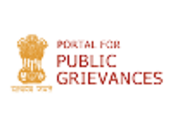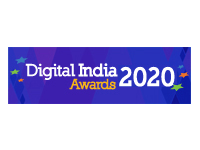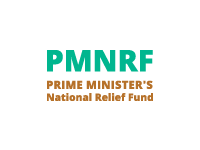Copyright Infringement
The case dealing with an infringement of copyright was tried in two courts, namely, the Trial Court and Delhi High Court between an organization called CARE, and writer Mr P N Krishana Murthy. CARE (Cooperative for American Relief Everywhere) is a US-based international voluntary agency that undertakes forwarding of overseas aids voluntarily and Mr Murthy (hereinafter referred to as the plaintiff) is a writer of children's story books carrying business under the name M/s Children Are Precious (CAP). The Trial Court decided the case in plaintiff's favour at the district level in 1998 to which both the parties filed appeals in the High Court. The case was finally decided in favour of the plaintiff and CARE was ordered to pay the necessary damages to Mr Murthy.
CARE had entered into a contract with the plaintiff in 1969 for getting a story written by the plaintiff titled Lakshman kills a tiger. The book was printed and published in English and seven other Indian languages. CARE signed another contract with the plaintiff for printing 15 lakh copies of the book in Malayalam. CARE terminated this contract before its fulfilment and got the copies printed in Malayalam from some other printer, bypassing the plaintiff. The plaintiff, when came to know about this development filed a suit against CARE in Trial Court for a permanent injunction and recovery of damages.
CARE's Arguments
CARE claimed that:
- The plaintiff was their employee and he wrote the story under an order from CARE. Therefore, the copyright vested with CARE only.
- The work of translating the original text was given to the plaintiff and he was paid for it, so the copyright of the translation also vested with CARE.
- The printed books were the property of CARE and therefore could be distributed by CARE without any license from the plaintiff.
- Alternatively, CARE also claimed that the copyright of the book was assigned by the plaintiff to CARE and CARE was also given a license to exploit, publish and prominently declare the ownership of the copyright.
The plaintiff submitted before the Court that he owned the copyright for the story under Copyright No. 468/69 dated 21st March,1969. Both parties filed lengthy written submission and it took many years for CARE to submit evidences. The Trial Court recorded the findings of both sides and raised certain issues. These were:
- Whether the plaintiff was the original copyright holder for the story.
- Whether the copyright vested with CARE by employment of the plaintiff or by assignment.
- Whether the copyright of the plaintiff extended to translation.
- Whether the plaintiff was entitled to rendition of accounts and relief.
The Court held on the basis of the evidence produced that the plaintiff was the original copyright holder of the story and remarked that:
- The story was not written by the plaintiff while in employment with CARE.
- There was no assignment of the copyright by the plaintiff in favour of CARE. Therefore, CARE had committed an infringement.
- As the manuscript of the story was physically with the plaintiff, it cannot possibly belong to CARE.
- The citation at the back of the cover displayed the plaintiff's organization i.e. CAP as publisher and printer.
- Books in English distributed in India and abroad having the print line bearing the name CAP as the printer and publisher, indicated clearly the ownership of the plaintiff over the copyright of the story.
- The very fact that CARE had initially signed a contract with the plaintiff for printing and publishing books in eight languages and later in Malayalam indicates that the copyright vested with the plaintiff. Brief of the Judgement given by the Trial Court The judge, therefore, concluded that the plaintiff was entitled to injunction, rendition of accounts and damages. The Court passed a decree of Rs.2.31 lakhs in favour of the plaintiff and an order of injunction. CARE and the plaintiff filed separate appeals in the Delhi High Court against the judgement of the Trial Court. The plaintiff appealed that the injunction order was not generic and the Court should have allowed exemplary damages. CARE appealed broadly on the earlier grounds.
The High Court while deliberating on the plaintiff's appeal agreed that the injunction order was not generic and allowed permanent injunction restraining the defendants from printing the book. As the books were distributed to poor children free of cost, the Court considered that exemplary damages should not be granted in this case. The Court also reviewed the damages allowed by the Trial Court and came to the conclusion that the damages were not adequate. The Court took into consideration that CARE had actually printed 14 million copies of which 4.126 million copies were printed and published under the earlier contract. So the infringing copies for which damages had to be calculated were 9.874 million. The Court awarded 17.5% of the cost as damages which was Rs. 17.28 lakhs along with the yearly interest of 12 percent. [Text modified]
— Reproduced from Journal of Intellectual Property Rights 2001, 7(1), 5-6
Chinese Regulations on Computer Software. Computer World 2001, (106 = Dec2000/Jan 2001)
In order to boost information security, Beijing has issued new regulations on computer software. The main features of the regulations are:
- Prohibition of import and export of unregistered computer software to and from the mainland.
- Computer software developers and vendors to register with the Ministry of Information Industry (MII) before launching any software on the mainland.
- Software producers to seek permission from copyright holders to produce computer software and other forms of media products such as chips, CD-ROM and VCD.
- MII shall be the sole regulator on the mainland and shall be empowered to ban any software that violates the national standards, infringes IPRs or contains viruses, illegal information or information that could pose a threat to computer system security.
— Reproduced from Journal of Intellectual Property Rights 2001, 7(1), 7-8
US Patent for Manu Agarwal. Indian Express,5 Jan 2001
Manu Agarwal, Chairman and Managing Director of the Mumbai-based Design Expo Network Pvt. Ltd. has won a US patent for designing a computer chip which enhances the memory applications in various electronic gadgets such as mobile phones and microwave ovens. The patent was granted on grounds of cost efficiency , fast accessibility and redundancy.
— Reproduced from Journal of Intellectual Property Rights 2001, 7(1), 11
Antipiracyindia.com
Antipiracyindia.com is a Maharashtra-based organization dedicated to eradicate piracy in the country. It has a team or professional copyright lawyers, criminal lawyers and ex-IPS officers who work closely with government departments like Food and Drugs Administration, Police and others to eradicate piracy and adulteration. Their site antipiracyindia.com offers all relevant information on piracy prevalent in the country. They have devised a software solution for adulteration and piracy in the pharmaceutical industry and also an authentication agency on the net.
— Reproduced from Journal of Intellectual Property Rights 2001, 7(1), 11
Information Today & Tomorrow, Vol. 20, No. 2, June 2001, p.25-p.26
http://itt.nissat.tripod.com/itt0102/iprres0102.htm





















